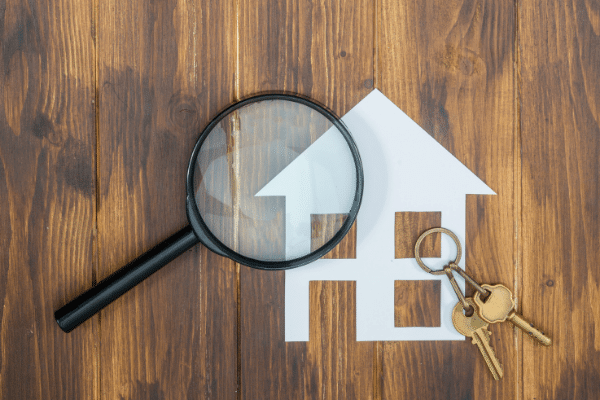Are you a new international student in Australia, looking for a place to stay? Starting a new life in a new country is never easy, even more so when you’re stressed out by endless house inspections to find the perfect home.
Fret not! Whether you want to live alone, with friends, or with like-minded individuals, there are plenty of accommodation options for international students in Australia. You just need to know where to look.
University accommodation
This option can be extremely convenient for new arrivals to the country. Students experience campus life and get plenty of opportunities to new friends and build a support system through campus parties, gatherings, and barbeques.
Student accommodation chains that can be found across Australia include Urbanest, Scape, Unilodge, and Iglu. There are also university-specific accommodations like Macquarie Village at Macquarie University, Sydney or Joondalup Student Village at Edith Cowan University, Perth. Weekly rent can range anywhere between $250-$800, depending on location, number of rooms, and facilities available.
Compared to share-houses or studio apartments, this option can be costly. For example, rent of a twin studio apartment at Little Hall, University of Melbourne starts at $365 per week. On the other hand, rent of a studio apartment at Scape Abercrombie (just a short walk from the University of Sydney) starts at $599 per week.
Homestay
Homestays are a popular option amongst students who want to experience Australian lifestyle with a local family. Homestay accommodation can be found via sites like Australian Homestay Network (AHN) and Oz Homestay.
You’ll get to enjoy travelling popular spots in Australia with your host family and hosts also act as guardians for under-eighteen students in compliance with student visa laws, to ensure their safety. Homestay costs start at $290, depending on facilities available such as the number of cooked meals per day. Airport pickup facilities are also available.
READ ALSO: International students guide #1: the best student discounts

Shared accommodation
You can choose to live in share-houses or apartments with housemates and flatmates. Keep an eye out for rooms on Facebook marketplace or Gumtree. You can search for specific criteria such as en-suite rooms or single rooms with shared washrooms. Both furnished and unfurnished rooms are available.
Lease periods can range from anywhere between two weeks (in case of short-term lease) to one year (long-term lease agreements). Landlords are often tenants who sublet their apartment rooms with a four-weeks bond and two weeks rent in advance. Rent prices vary anywhere between $100-$500. Living in the city can be more expensive compared to living in suburbs slightly outside the central business district.
While shared accommodation is much cheaper, downsides of living in such places can be the cost of living with strangers. Without background checks, it is tough to determine if they are reliable. Are they neat? Do they play loud music at all hours of the day? Do they not respect your privacy?
Importantly, beware of scams on Gumtree. People sometimes pretend to have available rooms to take a deposit of a couple hundred dollars from gullible students, only to cheat them out of money and take down the advertisement. Whenever possible, try to visit an accommodation or request a virtual inspection before putting down any money.
Entire apartment for rent
If you already have people you would like to live with, you can also rent a whole apartment with two bedrooms or more. You can find these places on websites like Realestate and Domain.
Rent for a two-bedroom apartment varies between $350-$600, excluding bills. Lease agreements start from six-month contracts to over two years. To secure a place, you need to go on individual or open house inspections and pay a deposit. You must pay the bond and an advance of two weeks rent. You also need to show bank statements as evidence of your income, photo ID, and an employer reference.
While whole apartments were harder to rent prior COVID-19 pandemic, it is much easier now since the prices have gone down and you can easily secure your place close to universities. The biggest advantage of renting an apartment is access to privacy.
However, such places usually come unfurnished and you might have to shell out money for bed, sofas, and other basic furniture. Another difficulty faced by incoming international students is the lack of paperwork due to their recent arrival, especially if there are no employment prospects in the near future. In such instances, landlords might be reluctant to keep international students as tenants.

Important documents to keep handy
Most official rental processes, regardless of the accommodation option you choose, will require some documents from your side. These may include:
- Any previous tenancy agreements
- Bank statements
- Letters of reference / character statements
- Work history / resume
Tips when choosing an accommodation
- Take a moment to consider the lifestyle that works for you or the lifestyle you would like to lead in Australia. If you have classes in the mornings or lots of examinations as part of your degree, a share house filled with parties and distractions may not be suitable.
- How much is your budget? Can you truly afford to live in an apartment with friends and pay additional expenses like electricity and groceries?
- How often will you need to go to campus? Will you need to frequently need to use the library? In that case, maybe a student accommodation close to campus will suit your needs.
Regardless of your choice, make sure to keep a record of documents like tenancy agreements, receipt of the deposit (in case you pay with cash) or bank statement (in case of bank transfer). Ensure that your place stays clean and avoid damages to the property to secure your bond before moving out.
And most importantly, enjoy your stay in Australia!
With inputs from Rhea L Nath.





